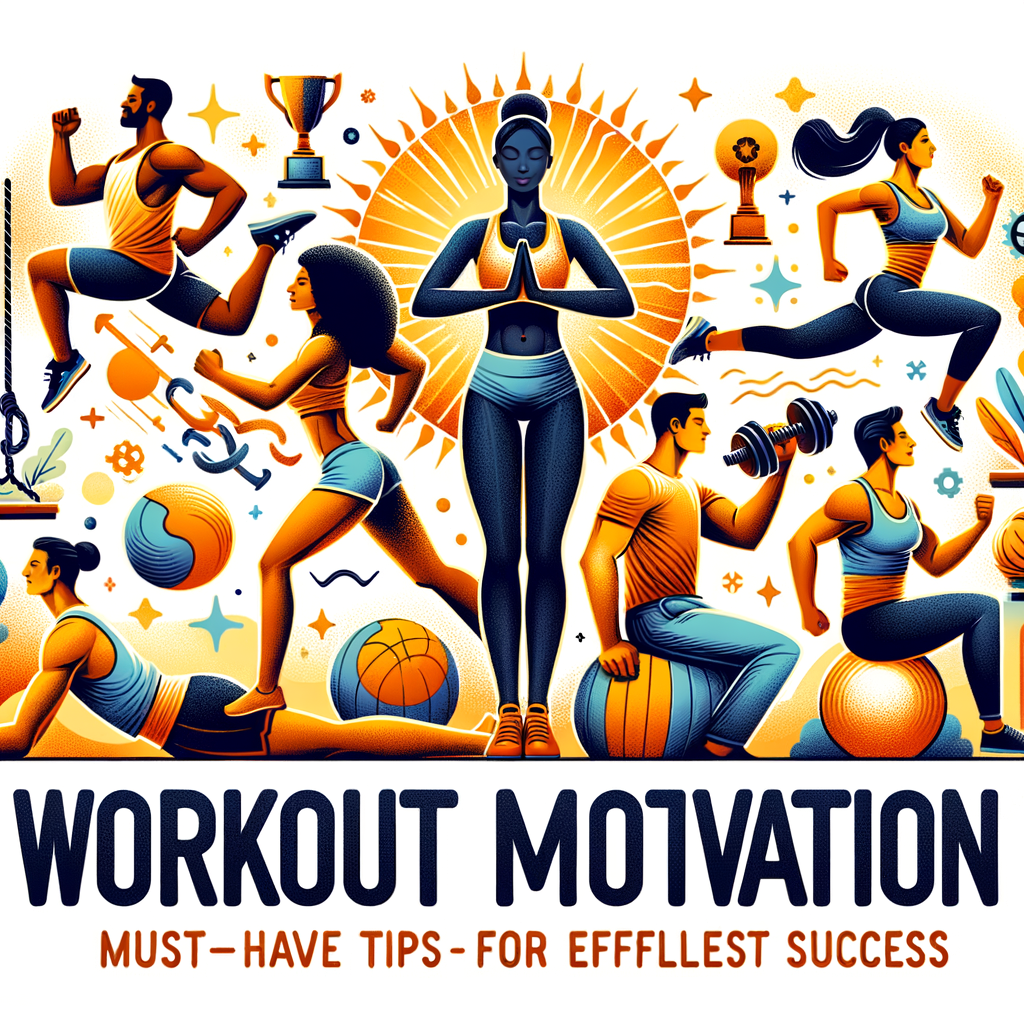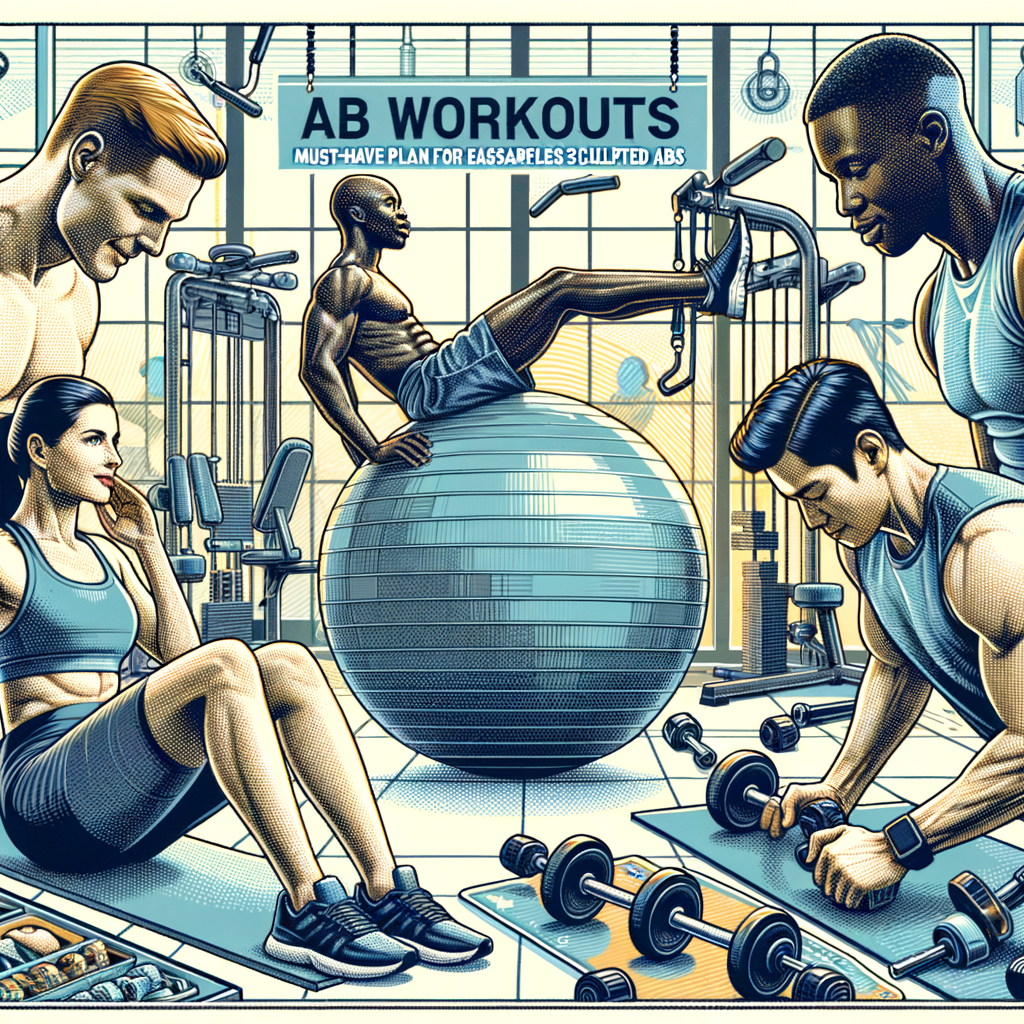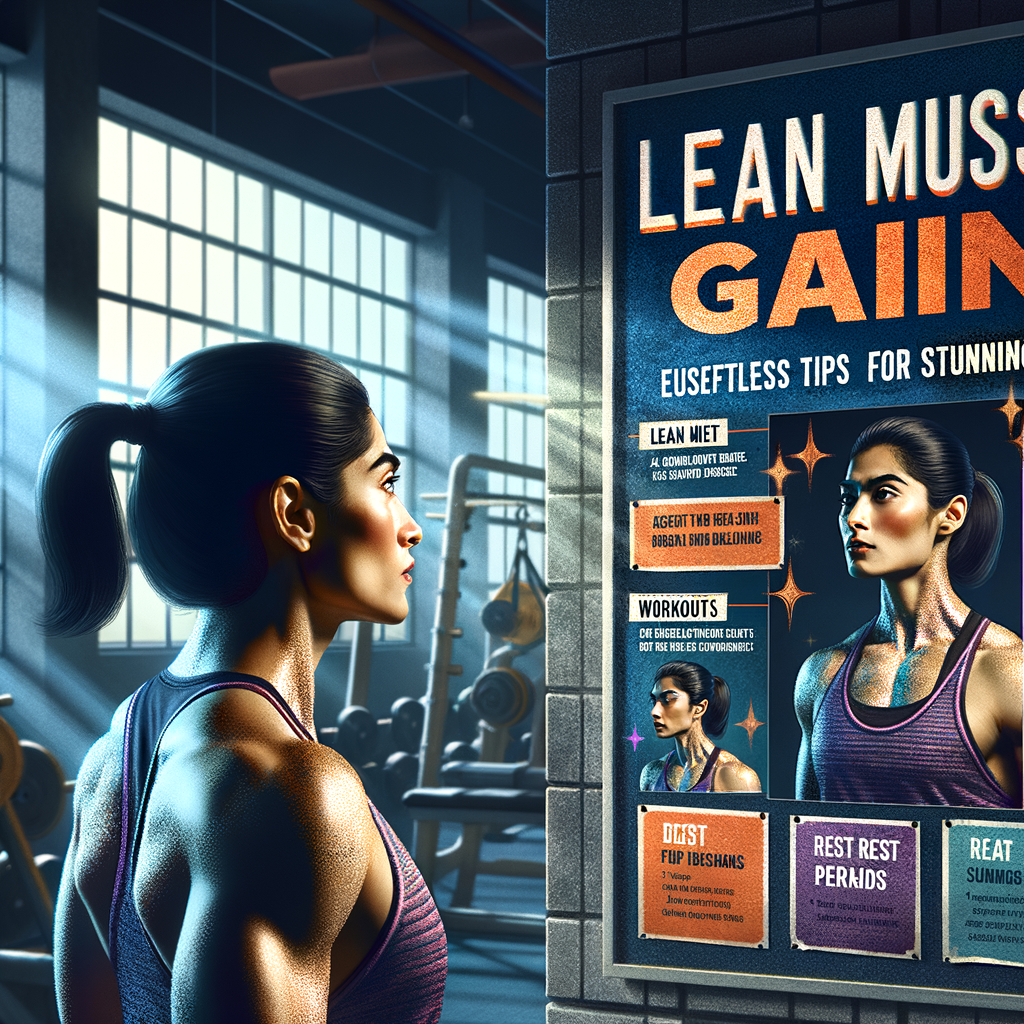- Understanding Bodybuilding: What’s the Goal?
- The Building Blocks of Bodybuilding
- Resistance Training
- Nutrition
- Recovery
- Crafting Your Bodybuilding Workout Plan
- Weekly Structure
- Workout Specifics
- Chest and Triceps
- Back and Biceps
- Legs
- Shoulders and Abs
- Full Body and Cardio
- Nutrition Strategies for Bodybuilders
- Macronutrients Breakdown
- Hydration
- Supplementation
- Tracking Your Progress
- Common Mistakes to Avoid
- Building a Community
- Online Resources
- The Importance of Mental Health
- FAQs
- 1. What's the best time to work out for maximum gains?
- 2. How often should I change my workout routine?
- 3. Can I build muscle without lifting heavy weights?
- 4. What should I eat before a workout?
- 5. Is it necessary to take supplements for bodybuilding?
- 6. How can I prevent injuries while bodybuilding?
- 7. How many sets and reps should I aim for?
- 8. Is it possible to build muscle and lose fat simultaneously?
- 9. Should I do cardio while bodybuilding?
- 10. How can I stay motivated on my bodybuilding journey?
- References
Understanding Bodybuilding: What’s the Goal?
Bodybuilding isn’t just about lifting heavy weights. It’s a lifestyle, a commitment to improving your physique and overall health. When you embark on a bodybuilding journey, you develop discipline, focus, and determination. Unlike typical gym sessions aimed solely at losing weight, bodybuilding emphasizes building muscle mass and strength.
To achieve this, a structured bodybuilding workout plan is essential. This plan will not only keep you motivated but also help you make consistent progress. Understanding the various components of a successful workout can unlock your ultimate gains.
The Building Blocks of Bodybuilding
Before you start, it’s crucial to understand the main elements of bodybuilding. These include resistance training, nutrition, and recovery. Each of these areas plays a vital role in muscle development and overall fitness.
Resistance Training
Resistance training involves using weights or bodyweight to create tension in your muscles. This tension triggers muscle growth. Free weights, machines, and resistance bands all work in this category. As you progress, you’ll want to adjust the weight and intensity to challenge yourself continually.
Nutrition
Nutrition and bodybuilding go hand-in-hand. The right fuel helps your body recover and grow. Focus on a high-protein diet to boost muscle repair. Carbs provide energy, while healthy fats support hormone levels. Balancing these macronutrients set the groundwork for achieving optimal results.
Recovery
Never underestimate the importance of recovery. Without it, your muscles can’t grow. Take at least one day off each week from training. Sleep also plays a significant role in muscle recovery, so aim for 7-9 hours a night.
Crafting Your Bodybuilding Workout Plan
Now that you understand the fundamentals, you’re ready to build your personalized bodybuilding workout plan. This plan should be tailored to your specific goals, fitness level, and available equipment. Below is a sample structure you can modify to fit your needs.
Weekly Structure
The typical bodybuilding plan often includes six days of training with one day for rest. Each workout session focuses on specific muscle groups, allowing for adequate recovery time. Here’s a suggested weekly structure:
| Day | Muscle Group |
|———|—————————-|
| Monday | Chest and Triceps |
| Tuesday | Back and Biceps |
| Wednesday| Legs |
| Thursday| Shoulders and Abs |
| Friday | Full Body |
| Saturday| Cardio and Core |
| Sunday | Rest |
Workout Specifics
For each day, focus on different exercises. Here’s a closer look at how to execute your workouts effectively.
Chest and Triceps
This session emphasizes pushing movements. Include exercises such as:
– Bench Press: 4 sets of 6-8 reps
– Dumbbell Flyes: 3 sets of 10-12 reps
– Tricep Dips: 3 sets of 8-10 reps
Focus on controlling your movement for optimal muscle engagement.
Back and Biceps
Pulling movements dominate this part of the week. Exercises to consider include:
– Pull-Ups: 4 sets of 6-8 reps
– Bent Over Rows: 3 sets of 8-10 reps
– Bicep Curls: 3 sets of 10-12 reps
Engage your core to maintain stability during these lifts.
Legs
Leg day is arguably one of the most crucial for a well-rounded physique. Here’s how to structure it:
– Squats: 4 sets of 6-8 reps
– Leg Press: 3 sets of 10-12 reps
– Lunges: 3 sets of 10 reps per leg
Don’t skip leg day; it builds a strong foundation.
Shoulders and Abs
Strengthening your shoulders not only enhances aesthetics but also improves upper body lifts. Consider these:
– Overhead Press: 4 sets of 6-8 reps
– Lateral Raises: 3 sets of 10-12 reps
– Plank: 3 sets of 30-60 seconds
Combining shoulder work with core exercises boosts stability.
Full Body and Cardio
On Friday, consider integrating exercises that engage multiple muscle groups:
– Deadlifts: 4 sets of 6-8 reps
– Push-Ups: 3 sets of 10-12 reps
– Kettlebell Swings: 3 sets of 15 reps
Finish your week with a light cardio session on Saturday. Activities like jogging, cycling, or swimming keep your heart healthy while aiding recovery.
Nutrition Strategies for Bodybuilders
A well-thought-out nutrition plan fuels your bodybuilding efforts. Focus on whole foods that provide necessary nutrients while avoiding processed options.
Macronutrients Breakdown
An effective bodybuilding diet typically focuses on three major macronutrients:
1. Proteins: Aim for 1.2 to 2.2 grams per kilogram of body weight daily. Include chicken, fish, eggs, and legumes.
2. Carbohydrates: Good sources include rice, oats, and fruits. Carbs are crucial for post-workout recovery.
3. Fats: Healthy fats from avocados, nuts, and olive oil support overall health.
Moreover, consider nutrient timing. Eating a meal rich in protein and carbs within 30 minutes post-workout helps kickstart recovery.
Hydration
Staying adequately hydrated is vital for performance and recovery. Aim for at least 3 liters of water daily, more on intense training days. Hydration aids in nutrient absorption and energy levels.
Supplementation
While whole foods are the best sources of nutrition, supplements can help fill any gaps. Protein powders, creatine, and branched-chain amino acids (BCAAs) can support your muscle growth and recovery needs.
Tracking Your Progress
Keep tabs on your progress to stay motivated. Use a workout log to record the weights, sets, and reps. You’ll enjoy seeing how far you’ve come. Additionally, take measurements of key areas like arms, legs, and chest every few weeks.
Consider taking progress photos every month. These visual reminders can spark motivation if the scale doesn’t move as quickly.
Common Mistakes to Avoid
As you embark on your bodybuilding journey, be aware of common pitfalls. Avoiding these can save you time and frustration.
1. Neglecting Warm-ups: Always start with a proper warm-up. This reduces the risk of injury.
2. Skipping Leg Day: Every muscle group matters. Developing legs enhances overall strength.
3. Impatience: Muscle growth doesn’t happen overnight. Be patient and consistent in your efforts.
4. Ignoring Nutrition: You can’t out-train a poor diet. Nutrition supports your hard work in the gym.
5. Not Getting Enough Sleep: Sleep is when your body repairs and grows. Make it a priority.
Being mindful of these errors will help your bodybuilding journey be more effective and enjoyable.
Building a Community
Bodybuilding can often feel isolating. Joining a gym or finding a workout buddy can make the experience much more enjoyable.
Engaging with fellow bodybuilders gives you a network of support and accountability. Social media and fitness forums are excellent platforms for connecting with others. Share tips, motivational quotes, and progress photos.
Online Resources
Many online platforms offer advice, workout plans, and communities focused on bodybuilding. Consider checking out:
– Bodybuilding.com
– Reddit’s r/bodybuilding
– Instagram fitness influencers
Having a community can provide that extra push when you need it.
The Importance of Mental Health
Bodybuilding is as much a mental journey as it is a physical one. Focus on maintaining a positive mindset throughout your progress. Adjust expectations and celebrate small victories.
Consider incorporating stress-reducing activities, like yoga or meditation, into your routine. Your mental health can impact your physical performance. Staying balanced is key.
FAQs
1. What’s the best time to work out for maximum gains?
Many people find that working out in the afternoon or early evening aligns best with their energy levels. However, choose a time that fits into your personal schedule.
2. How often should I change my workout routine?
Consider changing your routine every 4-8 weeks to avoid plateaus and keep things interesting.
3. Can I build muscle without lifting heavy weights?
Yes, you can build muscle using lighter weights. Focus on volume and ensuring proper form to maximize gains.
4. What should I eat before a workout?
Opt for a carbohydrate-rich snack, such as a banana or oatmeal, an hour or two before training.
5. Is it necessary to take supplements for bodybuilding?
While not necessary, supplements can help fill nutritional gaps, especially protein powders for post-workout recovery. Consult a healthcare provider for personalized advice.
6. How can I prevent injuries while bodybuilding?
Always warm up. Focus on proper technique and listen to your body’s signals. Gradually increase weights over time to avoid strain.
7. How many sets and reps should I aim for?
A common approach includes 3-4 sets of 6-12 reps, depending on your specific goals (strength vs. hypertrophy).
8. Is it possible to build muscle and lose fat simultaneously?
While challenging, it is possible, especially for beginners or those returning after a break. Focus on strength training and a balanced diet.
9. Should I do cardio while bodybuilding?
Yes, cardio can aid in fat loss and improve cardiovascular health. Just balance it with your weight training to avoid overtraining.
10. How can I stay motivated on my bodybuilding journey?
Set realistic goals, track your progress, and engage with a supportive community to keep your motivation high.
References
– Bodybuilding.com
– Healthline: Nutrition for Bodybuilding
– Mayo Clinic: Strength Training
– National Academy of Sports Medicine
With a solid bodybuilding workout plan, strong nutritional strategies, and a supportive community, you can unlock your ultimate gains today. Embrace the process, stay patient, and watch yourself transform!



